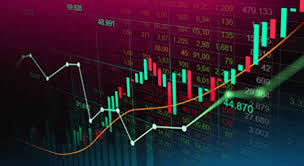
Forex Trading Beginners: A Comprehensive Guide to Getting Started
Forex trading can seem daunting for beginners, but with the right approach and knowledge, anyone can navigate the world of currency exchange. This forex trading beginners https://trading-bd.com/ is designed to equip you with the fundamental concepts, strategies, and tools you’ll need to embark on your Forex trading journey.
Understanding Forex Trading
Forex trading, or foreign exchange trading, involves buying and selling currencies. Unlike stock trading, the Forex market is decentralized, meaning it does not have a physical location and operates 24/5 through a network of banks, brokers, and financial institutions globally. The primary aim is to profit from the fluctuations in currency values.
Why Trade Forex?
The Forex market offers several advantages that make it attractive to traders:
- High Liquidity: The Forex market is the largest financial market in the world, with a daily trading volume exceeding $6 trillion, ensuring high liquidity.
- 24-Hour Market: Trading occurs 24 hours a day during weekdays, allowing traders to engage at their convenience.
- Leverage: Brokers often provide significant leverage, enabling traders to control large positions with a relatively small amount of capital.
- Diverse Trading Options: Traders can buy and sell numerous currency pairs, ranging from major pairs like EUR/USD to exotic pairs.

Forex Trading Basics
Before diving into Forex trading, beginners should familiarize themselves with some key concepts:
- Currency Pairs: In Forex trading, currencies are traded in pairs (e.g., EUR/USD), where the first currency is the base currency, and the second currency is the quote currency. The price represents how much of the quote currency is needed to purchase one unit of the base currency.
- Pips: A “pip” is the smallest price move in a currency pair. In most pairs, a pip is equivalent to a change of 0.0001.
- Spread: The spread is the difference between the buy (ask) and sell (bid) price of a currency pair and represents the cost of trading.
- Lot Sizes: Forex trading is typically conducted in specific lot sizes – standard (100,000 units), mini (10,000 units), and micro (1,000 units).
Choosing a Forex Broker
Selecting a reliable Forex broker is crucial for your trading success. Here are some factors to consider:
- Regulation: Ensure the broker is regulated by recognized financial authorities to provide security for your funds.
- Trading Platform: Look for a user-friendly and stable trading platform that suits your trading style.
- Leverage Options: Different brokers offer various levels of leverage; choose one that fits your risk tolerance.
- Customer Support: Reliable customer service can assist you in times of need, especially when starting out.
Developing a Trading Strategy
A well-defined trading strategy is essential for success in Forex trading. Here are some popular strategies to consider:

- Day Trading: This strategy involves opening and closing trades within the same day to capitalize on short-term price movements.
- Swing Trading: Swing traders hold positions for several days to capture larger price shifts, focusing on technical analysis.
- Scalping: Scalping involves making numerous trades throughout the day to profit from small price fluctuations.
- Trend Following: This strategy focuses on identifying and following the direction of the market trend.
Risk Management in Forex Trading
Effective risk management is vital to protect your capital and minimize losses. Consider implementing the following techniques:
- Use Stop-Loss Orders: A stop-loss order automatically closes a position at a predetermined level, limiting potential losses.
- Risk-Reward Ratio: Aim for a risk-reward ratio of at least 1:2, meaning you are willing to risk $1 to make a profit of $2.
- Never Risk More Than You Can Afford to Lose: Only invest funds that you are willing to lose without impacting your financial stability.
- Diversify Your Portfolio: Avoid putting all your capital into one currency pair; diversify to mitigate risks across different assets.
Continuous Learning and Improvement
Forex trading is a continuous learning process. Forex traders should stay updated on market news, trends, and economic indicators that can impact currency prices. Consider utilizing demo accounts to practice trading strategies without risking real money. Joining Forex trading communities or forums can also provide valuable insights and support from other traders.
Conclusion
Forex trading can be a profitable venture for beginners, provided they take the time to learn the essentials, develop a solid strategy, and practice disciplined risk management. While the journey may seem challenging at first, the rewards can be substantial for those who approach the market with dedication and respect. Take your time to understand the intricacies of the Forex market, and soon enough, you’ll be well on your way to becoming a successful Forex trader.
